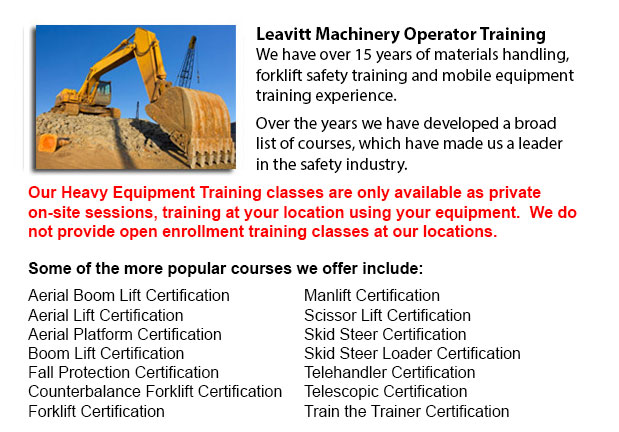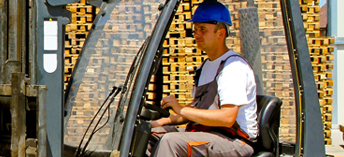
Heavy Equipment Ticket Brampton - Depending on the nature of the job at hand, the kind of construction machinery which a heavy equipment operator makes use of differs. Each kind of equipment is made to carry out specific jobs in the most efficient manner common to the construction business. Various kinds of machines are small enough to be utilized within plants or inside of warehouses, and can be specially designed to move pallets and boxes. Bigger equipment is normally utilized outdoors to clear areas and grade land to prepare for construction.
Numerous work projects will require a licensed heavy equipment operator, like numerous public works projects and private endeavors. Public works tasks could consist of the construction of a bridge or roads. There are numerous other publicly funded projects which include dam construction, airport runways, levees, power plants and municipal structures. Private projects can comprise the construction of office buildings, malls, retail stores and industrial parks.
Small scale jobs will normally require heavy equipment to be utilized within huge industrial spaces or inside commercial buildings. The machinery which will be utilized in this particular instance, includes forklifts, cherry pickers and pallet jacks. Backhoes and trenchers are usually available in different sizes appropriate for work needing powerful and less bulky machines.
Normally, a heavy equipment operator is needed to be certified by regional or local agencies. Some are cross-trained and certified to operate a lot of different machine kinds. Other operators choose to specialize in operating just one type of machinery and just need periodic updates on their operating permit certifications.
The employers working in this industry operating heavy machinery would usually be trained by taking a formal apprenticeship program or by receiving on-the-job training by their companies or unions. It is necessary that employers hire fully-trained heavy equipment operators in order to adhere to local guidelines and comply with regional and local laws regarding job conditions and worker safety.
-
Boom Lift Operator Training Brampton
Boom Lift Operator Training Brampton - A cherry picker is a type of aerial work platform. Cherry pickers consist of a platform or bucket at the hydraulic lifting system's end. The device is also called a man lift, boom lift, basket crane or hydraladd... More -
Forklift Instructor Training Brampton
Forklift Instructor Training Brampton - For those lift truck operators who want to become a forklift instructor it is recommended that they complete a forklift Instructor training certification program. Entry qualifications for the forklift instructo... More -
Manlift Certification Brampton
Manlift Certification Brampton - The Manlifts and Elevated Platforms program offers training on the regulations, rules and correct application of safe operating measures and work practices involved in daily activities for those who work using this ma... More -
Telehandler Training in Brampton
Telescopic handlers normally called telehandlers for short, are a really popular piece of heavy construction equipment. They are usually used in the construction and agricultural trades. These machines have farthest reaching capacity and are able to... More -
Order Picker Training Brampton
Order Picker Training Brampton - The order picker lift truck allows for people working in a warehouse setting to lift pallets making use of forks. This electronically-powered machinery is also referred to as a stock picker and is similar to a forklif... More -
Zoom Boom Ticket Brampton
Zoom Boom Ticket Brampton - Zoom Boom Training focuses on correctly training prospective operators on variable reach forklifts. The training objectives include gaining the knowledge of the equipments physics and to be able to define the tasks of the... More -
Crane Training Schools Brampton
Crane Training Schools Brampton - Our different Mobile Crane Operation programs are meant for experienced operators who requires re-certification or certification, and for inexperienced people who are searching for their first job as a crane operator... More -
Crane Safety Training Brampton
Crane Safety Training Brampton - Both crane operator as well as their employers need to be aware of all the potential problems associated to the use of an overhead crane. All across North America, there is legislation which provides rules for the saf... More

Forklift Training Brampton
TOLL FREE: 1-888-254-6157
Brampton, Ontario
forklifttrainingbrampton.ca
Email Us
About Us


